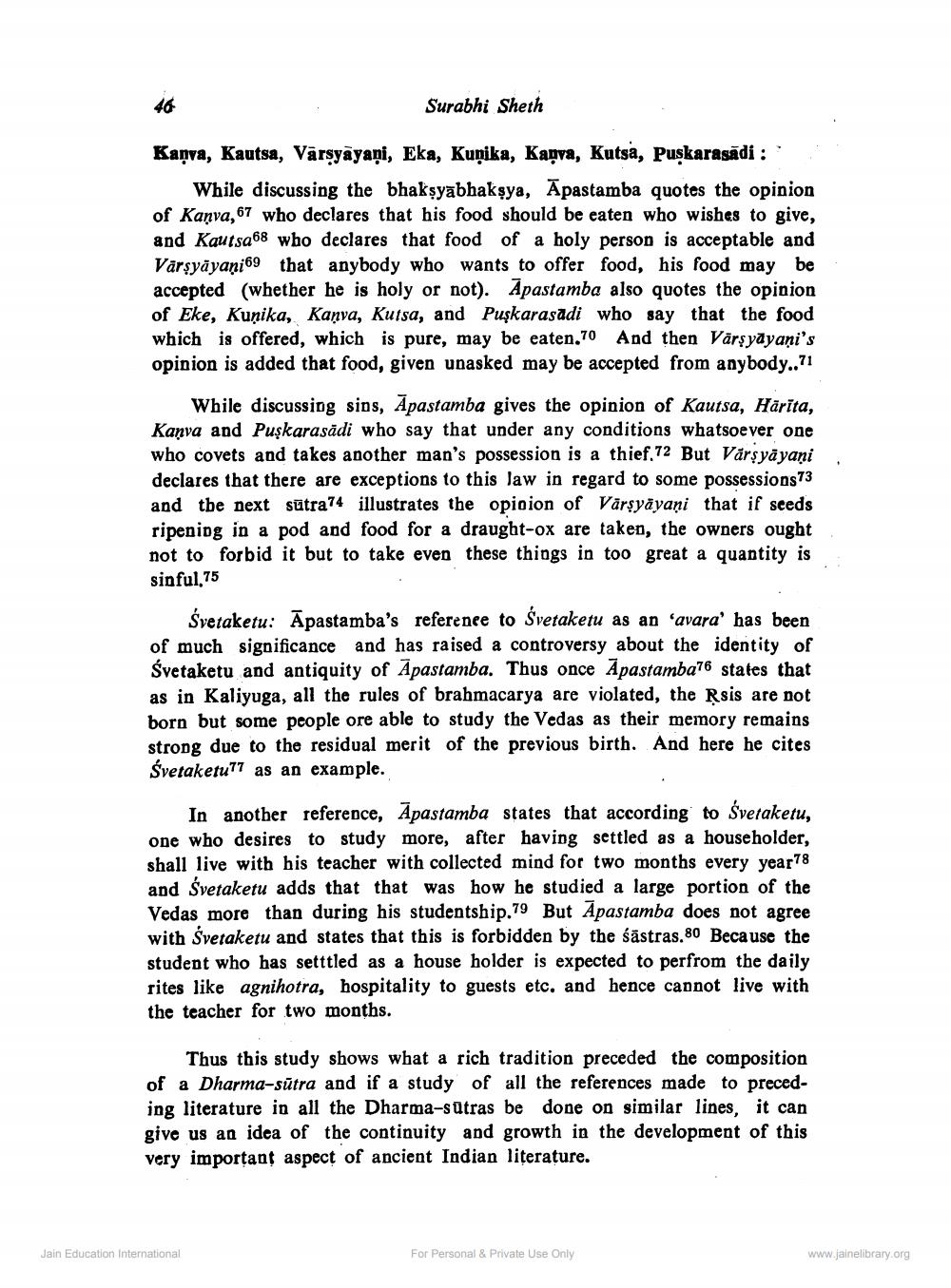________________
Surabhi Sheth
Kaņva, Kautsa, Vārsyayaņi, Eka, Kuņika, Kapya, Kutsa, Puskarasādi:
While discussing the bhaksyabhakşya, Āpastamba quotes the opinion of Kanva, 67 who declares that his food should be eaten who wishes to give, and Kautsa68 who declares that food of a holy person is acceptable and Varsyāyaṇi69 that anybody who wants to offer food, his food may be accepted (whether he is holy or not). Apastamba also quotes the opinion of Eke, Kuņika, Kaņva, Kutsa, and Puşkarasadi who say that the food which is offered, which is pure, may be eaten.70 And then Vārşyāyaṇi's opinion is added that food, given unasked may be accepted from anybody..71
While discussing sins, Apastamba gives the opinion of Kautsa, Harita, Kanva and Puşkarasādi who say that under any conditions whatsoever one who covets and takes another man's possession is a thief,72 But Värsyāyaņi declares that there are exceptions to this law in regard to some possessions73 and the next sūtra74 illustrates the opioion of Vārsyāyaṇi that if seeds ripening in a pod and food for a draught-ox are taken, the owners ought not to forbid it but to take even these things in too great a quantity is sinful,75
Svetaketu: Apastamba's reference to Svetaketu as an 'avara' has been of much significance and has raised a controversy about the identity of Svetaketu and antiquity of Apastamba. Thus once Āpastamba76 states that as in Kaliyuga, all the rules of brahmacarya are violated, the Rsis are not born but some people ore able to study the Vedas as their memory remains strong due to the residual merit of the previous birth. And here he cites Svetaketu77 as an example.
In another reference, Āpastamba states that according to Svetaketu, one who desires to study more, after having settled as a householder, shall live with his teacher with collected mind for two months every year78 and Svetaketu adds that that was how he studied a large portion of the Vedas more than during his studentship.79 But Āpastamba does not agree with Svetaketu and states that this is forbidden by the śāstras.80 Because the student who has setttled as a house holder is expected to perfrom the daily rites like agnihotra, hospitality to guests etc. and hence cannot live with the teacher for two months.
Thus this study shows what a rich tradition preceded the composition of a Dharma-sūtra and if a study of all the references made to preceding literature in all the Dharma-sūtras be done on similar lines, it can give us an idea of the continuity and growth in the development of this very important aspect of ancient Indian literature.
Jain Education International
For Personal & Private Use Only
www.jainelibrary.org




